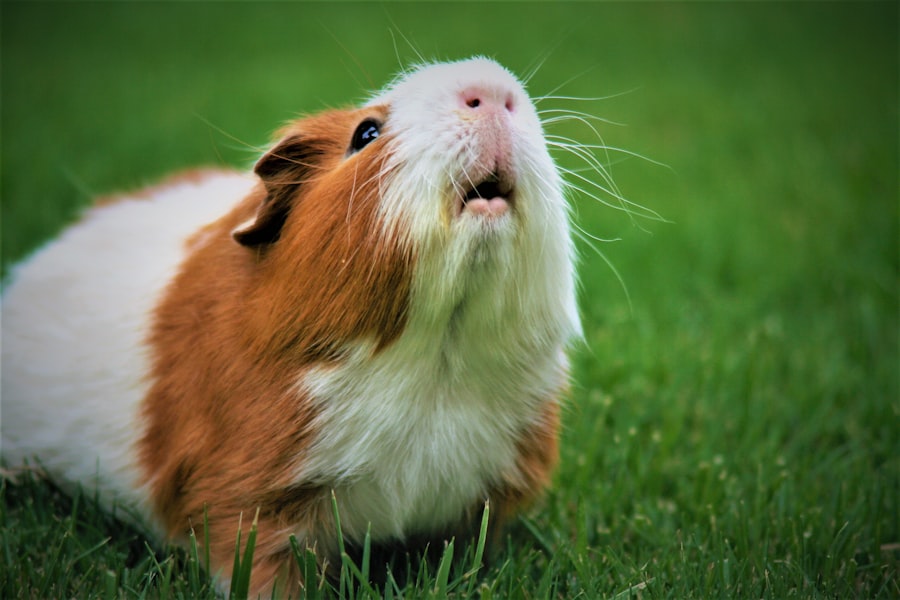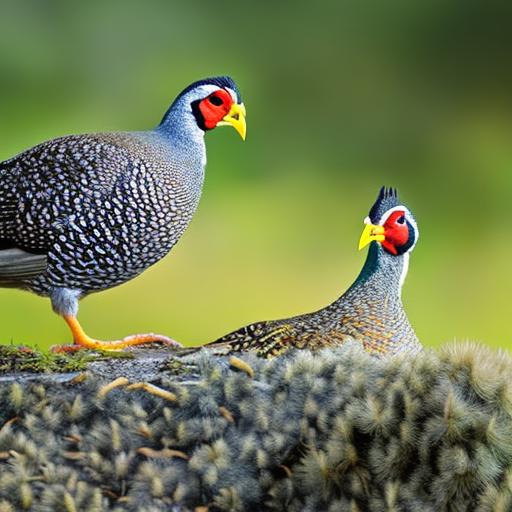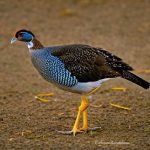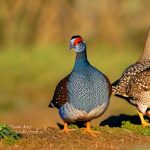Guinea fowl are known for their loud and distinctive vocalizations, which can range from a series of high-pitched calls to a more melodious, rolling sound. These vocalizations serve several purposes in the wild, including communication within the flock, warning of potential threats, and signaling the presence of food or water. Understanding the natural vocalizations of guinea fowl is essential for any owner looking to minimize excessive noise. By recognizing the different types of calls and their meanings, owners can better interpret their guinea fowl’s behavior and respond accordingly. For example, if guinea fowl are making loud, repetitive calls, it could indicate that they are feeling threatened or stressed. By addressing the underlying cause of their distress, such as the presence of a predator or inadequate living conditions, owners can help reduce excessive noise in a more effective manner.
On the other hand, guinea fowl may also vocalize to express contentment or to communicate with other members of the flock. By observing their body language and the context in which vocalizations occur, owners can gain valuable insights into their guinea fowl’s emotional state and overall well-being. This understanding can help owners differentiate between natural, necessary vocalizations and excessive, disruptive noise. By acknowledging and respecting the natural vocalizations of guinea fowl, owners can create a more harmonious living environment for both the birds and themselves.
Key Takeaways
- Guinea fowl have a range of natural vocalizations that can indicate their mood and behavior.
- Creating a peaceful environment for guinea fowl involves minimizing loud noises and providing hiding spots.
- Guinea fowl require adequate space to roam and amenities such as dust baths and perches.
- Implementing a consistent feeding and watering schedule can help reduce stress and noise in guinea fowl.
- Behavioral training techniques can be used to minimize noise and encourage calm behavior in guinea fowl.
Creating a peaceful environment for guinea fowl
Creating a peaceful environment for guinea fowl is essential for minimizing excessive noise and promoting their overall welfare. This can be achieved by providing a spacious and secure living area that meets their physical and behavioral needs. Guinea fowl thrive in environments with plenty of room to roam and explore, as well as access to shelter and perches for roosting. By ensuring that their living space is well-ventilated, clean, and free from potential stressors such as overcrowding or aggressive flock members, owners can help reduce the likelihood of excessive vocalizations caused by discomfort or anxiety.
In addition to physical accommodations, creating a peaceful environment for guinea fowl also involves minimizing potential sources of stress and disturbance. This can include limiting exposure to loud noises, sudden movements, or unfamiliar animals, as well as providing opportunities for mental stimulation and social interaction. By establishing a predictable daily routine and maintaining a calm, consistent demeanor around the birds, owners can help create a sense of security and stability that can contribute to a quieter, more contented flock. Furthermore, providing ample access to food, water, and dust baths can help satisfy their natural behaviors and reduce the likelihood of vocalizing out of hunger or boredom. By prioritizing the well-being of their guinea fowl and creating a peaceful, enriching environment, owners can effectively address excessive noise issues while promoting the overall health and happiness of their birds.
Providing adequate space and amenities for guinea fowl
Providing adequate space and amenities for guinea fowl is crucial for minimizing excessive noise and ensuring their physical and psychological well-being. Guinea fowl are highly active birds that require ample space to move around, forage for food, and engage in natural behaviors such as dust bathing and roosting. Inadequate space can lead to stress, aggression, and excessive vocalizations as the birds compete for resources and territory. To address this, owners should provide a spacious outdoor enclosure or free-range area that allows guinea fowl to express their natural behaviors without feeling confined or overcrowded.
In addition to space, providing appropriate amenities such as shelter, perches, and dust bathing areas is essential for meeting the needs of guinea fowl. Shelter should be provided to protect the birds from inclement weather and predators, while perches or roosting areas allow them to rest comfortably off the ground. Dust bathing areas are also important for maintaining their plumage and skin health, as well as providing mental stimulation. By ensuring that these amenities are readily available and suitably designed for guinea fowl, owners can help reduce stress and boredom that may contribute to excessive vocalizations.
Furthermore, owners should consider the social dynamics within the flock when providing space and amenities. Providing multiple feeding and watering stations can help reduce competition and conflict among flock members, while offering hiding spots or visual barriers can provide shy or subordinate birds with a sense of security. By prioritizing the physical and behavioral needs of their guinea fowl and providing adequate space and amenities, owners can help minimize excessive noise while promoting a healthier, more harmonious living environment for their birds.
Implementing a consistent feeding and watering schedule
Implementing a consistent feeding and watering schedule is essential for minimizing excessive noise in guinea fowl while ensuring their nutritional needs are met. Guinea fowl are highly active birds with a strong instinct to forage for food throughout the day. Inconsistent or inadequate feeding schedules can lead to frustration, anxiety, and excessive vocalizations as the birds seek out sustenance. To address this, owners should establish a regular feeding routine that provides ample access to balanced nutrition while allowing guinea fowl to express their natural foraging behaviors.
In addition to regular feeding times, providing access to clean water at all times is crucial for maintaining the health and well-being of guinea fowl. Dehydration can lead to stress, discomfort, and increased vocalizations as the birds attempt to communicate their need for water. Owners should ensure that water sources are easily accessible, regularly cleaned, and replenished as needed to prevent dehydration and minimize unnecessary noise.
Furthermore, owners should consider the placement of feeding and watering stations within the living area to minimize competition and conflict among flock members. Providing multiple stations throughout the enclosure can help distribute resources more evenly and reduce the likelihood of aggressive behavior or excessive vocalizations during feeding times. By implementing a consistent feeding and watering schedule that meets the nutritional needs of guinea fowl while minimizing competition and stress, owners can help reduce excessive noise while promoting the overall health and welfare of their birds.
Using behavioral training techniques to minimize noise
Using behavioral training techniques can be an effective way to minimize excessive noise in guinea fowl while promoting positive behaviors and communication. Positive reinforcement training methods such as clicker training or target training can be used to teach guinea fowl to respond to cues or commands in exchange for rewards such as treats or access to preferred areas. By teaching guinea fowl to associate specific behaviors with positive outcomes, owners can encourage quieter, more controlled vocalizations while fostering a deeper bond with their birds.
In addition to positive reinforcement training, owners can also use environmental enrichment and distraction techniques to redirect excessive vocalizations in guinea fowl. Providing toys, perches, or foraging opportunities can help stimulate the birds mentally and physically, reducing boredom and the likelihood of loud vocalizations out of frustration or restlessness. Additionally, playing calming music or providing background noise in the living area can help mask external stimuli that may trigger excessive vocalizations in guinea fowl.
It’s important to note that patience, consistency, and understanding are key when using behavioral training techniques with guinea fowl. Owners should be mindful of their birds’ individual personalities and limitations when implementing training methods, as well as avoid using punishment-based techniques that may cause fear or stress. By using positive reinforcement training methods and environmental enrichment strategies, owners can help minimize excessive noise in guinea fowl while promoting a more harmonious relationship based on trust and mutual understanding.
Considering the potential impact of predators and other stressors

Considering the potential impact of predators and other stressors is crucial for addressing excessive noise issues in guinea fowl while ensuring their safety and well-being. Guinea fowl are naturally vigilant birds that are sensitive to potential threats in their environment. The presence of predators such as foxes, raccoons, or birds of prey can trigger loud alarm calls or distress vocalizations in guinea fowl as they attempt to warn the flock and protect themselves from harm.
To address this, owners should take proactive measures to secure the living area and minimize the risk of predation. This can include installing sturdy fencing or netting around the enclosure, providing secure shelter for roosting at night, and removing potential hiding spots or attractants for predators in the surrounding area. By creating a safe and secure environment for guinea fowl, owners can help reduce stress-related vocalizations while promoting a greater sense of security for the birds.
In addition to predators, other stressors such as extreme weather conditions, unfamiliar animals, or changes in routine can also contribute to excessive noise in guinea fowl. Owners should be mindful of these potential stressors and take steps to minimize their impact on the birds’ well-being. This can include providing ample shelter from harsh weather, gradually introducing new animals or changes in routine, and maintaining a calm, predictable demeanor around the birds. By considering the potential impact of predators and other stressors on guinea fowl while taking proactive measures to mitigate these risks, owners can help reduce excessive noise while promoting a safer, more tranquil living environment for their birds.
Seeking professional advice for excessive noise issues
Seeking professional advice for excessive noise issues in guinea fowl is essential for addressing underlying causes while ensuring the birds’ welfare is prioritized. If owners are struggling to manage excessive vocalizations despite implementing various strategies, consulting with a veterinarian or avian behavior specialist can provide valuable insights into potential health concerns or behavioral issues that may be contributing to the problem.
A professional assessment can help identify any underlying medical conditions such as respiratory infections or nutritional deficiencies that may be causing discomfort or distress in guinea fowl. Additionally, an avian behavior specialist can offer tailored advice on behavior modification techniques, environmental adjustments, or training methods that are specifically suited to the individual needs of the birds.
Furthermore, seeking professional advice can also provide owners with reassurance and support as they work towards addressing excessive noise issues in their guinea fowl. A professional can offer guidance on realistic expectations, long-term management strategies, and ongoing support to help owners navigate challenges effectively while promoting the overall well-being of their birds.
In conclusion, understanding the natural vocalizations of guinea fowl is essential for addressing excessive noise issues while promoting their welfare. By creating a peaceful environment that meets their physical and behavioral needs, providing consistent access to food and water, using behavioral training techniques effectively, considering potential stressors such as predators, and seeking professional advice when needed, owners can effectively minimize excessive noise in guinea fowl while fostering a harmonious relationship based on trust and understanding.
Looking to keep your guinea fowl quiet and content? Check out Poultry Wizard’s article on “Creating a Peaceful Chicken Coop Environment” for some helpful tips and tricks. Maintaining a serene coop atmosphere is essential for keeping your guinea fowl calm and quiet. Learn about coop design, ventilation, and other factors that can contribute to a peaceful environment for your feathered friends. Read more here.
FAQs
What are some reasons why guinea fowl can be noisy?
Guinea fowl can be noisy due to their natural instinct to sound an alarm when they perceive a threat, when they are excited, or when they are communicating with each other.
How can I keep my guinea fowl quiet?
To keep guinea fowl quiet, you can provide them with a spacious and comfortable living environment, ensure they have enough food and water, and minimize potential stressors such as loud noises or predators.
Are there any specific breeds of guinea fowl that are quieter than others?
While individual guinea fowl may vary in their vocalizations, some breeders and owners have reported that certain breeds, such as the Royal Purple or Coral Blue, may be quieter than others.
Can training or socializing guinea fowl help reduce their noise levels?
Yes, training and socializing guinea fowl from a young age can help them become more accustomed to human interaction and potentially reduce their noise levels.
Are there any legal restrictions on keeping guinea fowl in residential areas due to their noise?
Some local ordinances or homeowners’ associations may have restrictions on keeping guinea fowl or other poultry due to noise concerns. It’s important to check local regulations before keeping guinea fowl in residential areas.
Meet Walter, the feathered-friend fanatic of Florida! Nestled in the sunshine state, Walter struts through life with his feathered companions, clucking his way to happiness. With a coop that’s fancier than a five-star hotel, he’s the Don Juan of the chicken world. When he’s not teaching his hens to do the cha-cha, you’ll find him in a heated debate with his prized rooster, Sir Clucks-a-Lot. Walter’s poultry passion is no yolk; he’s the sunny-side-up guy you never knew you needed in your flock of friends!







